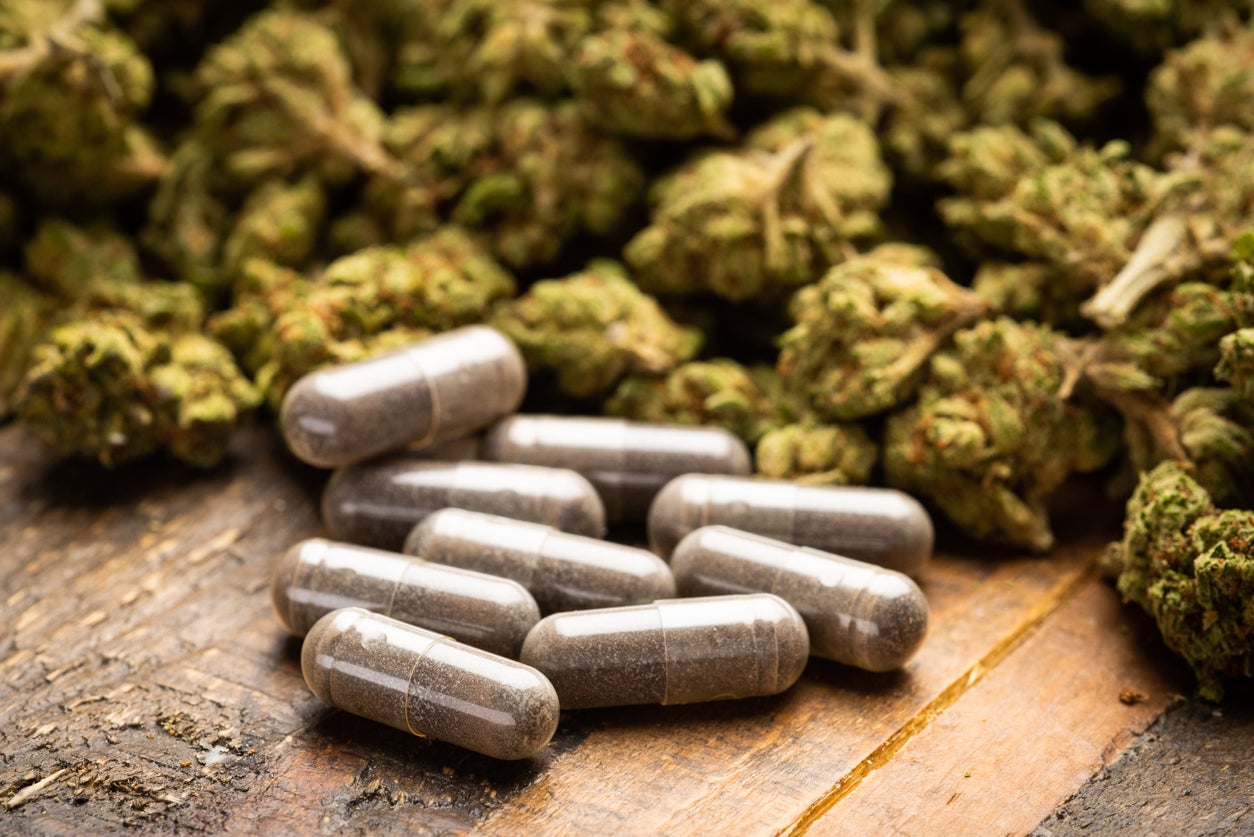It’s been three years since cannabis was made available on the NHS. Why has so little changed?
Cannabis may be technically available, but try to access it on the NHS and you’ll hit a dead end


Your support helps us to tell the story
From reproductive rights to climate change to Big Tech, The Independent is on the ground when the story is developing. Whether it's investigating the financials of Elon Musk's pro-Trump PAC or producing our latest documentary, 'The A Word', which shines a light on the American women fighting for reproductive rights, we know how important it is to parse out the facts from the messaging.
At such a critical moment in US history, we need reporters on the ground. Your donation allows us to keep sending journalists to speak to both sides of the story.
The Independent is trusted by Americans across the entire political spectrum. And unlike many other quality news outlets, we choose not to lock Americans out of our reporting and analysis with paywalls. We believe quality journalism should be available to everyone, paid for by those who can afford it.
Your support makes all the difference.Imagine having chronic pain so severe you can’t risk expending the energy it would take to get a glass of water – or what it’s like to hold your baby as they have their 100th potentially fatal seizure of the week.
You know there’s a medicine that could help – that would allow you to live, not merely survive. It would keep your child seizure-free. It’s a medicine legal for prescription since 2018, that’s supported by thousands of studies proving efficacy, that has an unrivalled safety record, that’s widely available in over 50 countries and that’s been re-classified by the UN Commission on Narcotic Drugs (CND) in recognition of its medical value.
You know this medicine exists but you’re prevented from accessing it because – behind the scenes – the avenues to do so have not been set up. Despite being legal for prescription, the supply framework for NHS access to cannabis is essentially a con.
Although officially available on the NHS, GPs aren’t authorised to prescribe it – a simple change our government could make today, on Medical Cannabis Awareness Week – which runs from 1 to 7 November.
Instead, GPs must refer their patient to a consultant, who then defers to a panel advised by pharmaceutical companies that actively lobby against cannabis access.
This panel (RESCAS) only reviews epilepsy patients; the panel for other conditions was withdrawn in 2019, shortly after it was instated. So if you have MS and your GP refers your case, there’s no one to consider it – and no funding. Cannabis may be technically available, but try to access it on the NHS and you’ll hit a dead end.
Since 2018, three people have been prescribed whole plant cannabis on the NHS. Others are offered isolate medications – cannabis formulations containing isolated compounds from the plant and additional ingredients, including ethanol (a known carcinogen). These are proven to be considerably less effective for many conditions.
In 2020, one such medication, Epidyolex, made GW pharmaceuticals $510.5 million (of a $527.2 total revenue – a 69 per cent increase compared to the previous year), after being approved by the NHS in 2019 with assistance in trials from members of the aforementioned panel.
Unlike whole plant cannabis, where adverse reactions are minimal, side effects of this drug include liver injury, sedation and suicidal behaviour.
Vulnerable people now find themselves in the position where accessing their medicine means selling their house, moving to another country or turning to the illicit market. Justifications given by our government and regulating bodies such as the MHRA (sponsored by the Department of Health and Social Care), and the BPNA (advised by the MHRA) are convoluted.
We’re told “we need evidence to prove safety and efficacy”. Even though in the UK alone, over $40 million has been spent on cannabis research since 2000 (albeit, dominated by studies trying to find the potential harms rather than benefits).
We also have more Real World Data (RWD) – spanning decades and millions of users – to support the safety and efficacy of cannabis than any other pharmaceutical drug.
Drug Science programme, Project Twenty21, provides the NHS with regular data and peer-reviewed papers from 2,000 patients for whom cannabis significantly improves lives where other drugs have failed. No death has ever been directly caused by it – unlike most pharmaceutical drugs it might replace. This includes other, sometimes unlicensed, medications patients must try before being allowed to pay for cannabis medications privately.
Still, this isn’t enough.
“More Randomised Controlled Trials (RCTs) needed”, although RCTs are notoriously bad at determining long-term safety and are inappropriate for studying complex organisms, like cannabis. Over 100 million users worldwide have established the low incidence of serious side effects, but this still doesn’t cut it. Yet less than a year’s worth of data from 200,000 women in the US was enough to establish the safety of the Moderna and Pfizer Covid vaccines in pregnancy.
The issue clearly isn’t safety.
To keep up to speed with all the latest opinions and comment sign up to our free weekly Voices Dispatches newsletter by clicking here
Children with intractable epilepsy conditions, who could have a 95 per cent chance of significant reduction in seizures with whole plant cannabis (as opposed to 50 per cent, the best outcome of typically prescribed NHS medications, such as benzodiazepines or CBD isolate medication, Epidiolex) and who suffer brain damage and death without it, are not safe. Hundreds of thousands of chronic pain patients, who could be living pain-free and without the fear of overdosing on prescription painkillers, are not safe.
More than a million people, with serious conditions could see improvement if only they could access this medication.
Of course, billions in profits would be lost if cannabis became genuinely accessible on the NHS. In countries with genuine cannabis access, prescriptions for anti-seizure medications, antidepressants, pain killers and more have plummeted.
The conflict of interest between medicine and profit is obvious and lethal. Until it is resolved in favour of the patient, too many – who are anything but safe – will continue to suffer or die unnecessarily.
Join our commenting forum
Join thought-provoking conversations, follow other Independent readers and see their replies
Comments